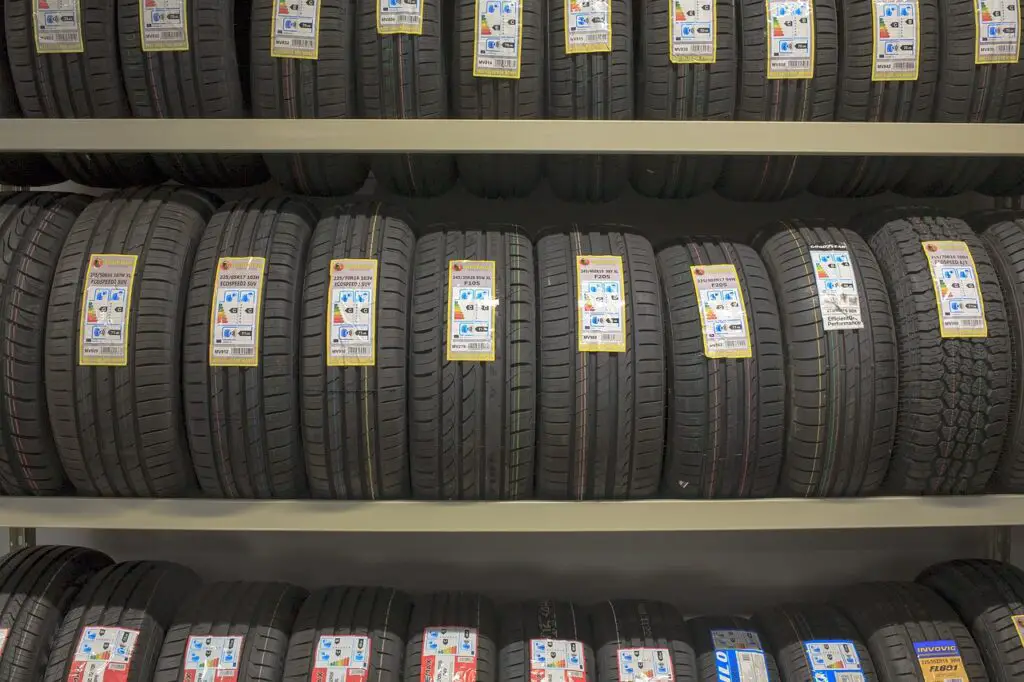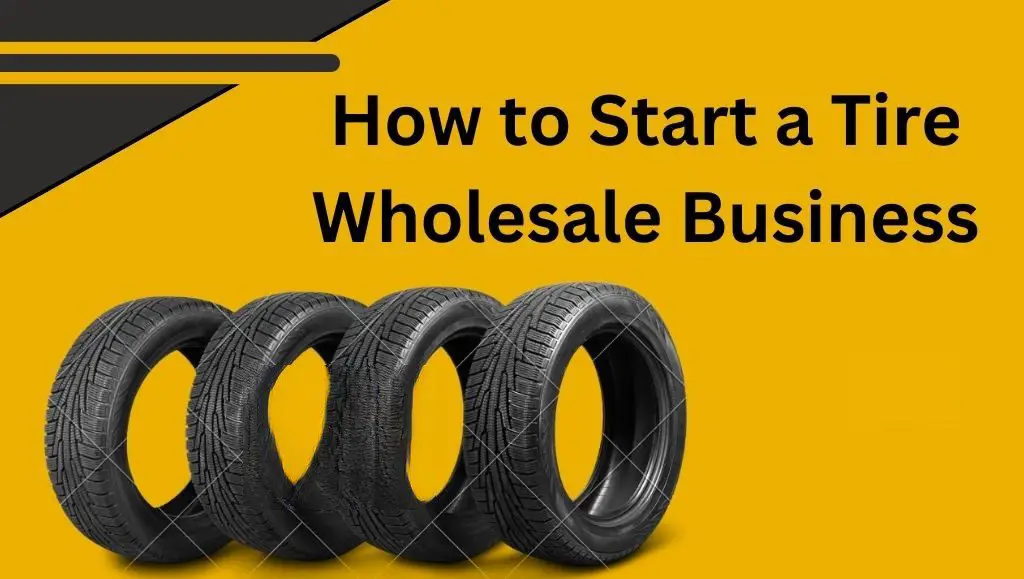Commencing a tire wholesale enterprise holds the promise of substantial profitability and enduring prosperity. In this all-encompassing manual, we shall lead you through the indispensable stages of establishing and operating a thriving tire wholesale business. I will delve into market insights, strategic business planning, regulatory obligations, establishment logistics, inventory control, adept sales and marketing tactics, prudent financial administration, cultivation of robust supplier and customer affiliations, and the optimization of operational efficiency. Upon journeying through this guide, you will acquire a comprehensive grasp of the requisites for excelling in the tire wholesale sector.
1. Understanding the Tire Wholesale Industry
Before immersing yourself in the tire wholesale trade, it is of utmost importance to acquire a profound understanding of the industry. Here’s a breakdown of the essential knowledge you should possess:
Industry Overview
The tire wholesale sector holds a pivotal role within the automotive domain. Tire wholesalers predominantly cater to a client base comprising automotive vendors, repair establishments, and dealerships. Grasping the intricate workings of this industry, encompassing prevailing trends, competitive forces, and customer inclinations, stands as a fundamental requirement.
Market Trends
Stay vigilant about prevailing industry trends, encompassing the surging interest in eco-friendly tire options, compatibility with electric vehicles, and the influence of online tire retail. Remaining well-informed about these developments will empower you to formulate judicious decisions pertaining to your inventory management and strategic marketing approaches.
Competition
Conduct thorough examinations of your rivals, both at the local and national levels, with the objective of pinpointing unexplored opportunities within the market landscape. Consider what unique value you can offer, whether it’s competitive pricing, exceptional customer service, or specialized tire options.
2. Market Research and Business Planning
Market Research
Conduct thorough market research to identify potential customer segments and their needs. Analyze the demand for different types of tires, such as passenger, commercial, or specialty tires, to determine your product range.
Business Plan
Develop a comprehensive business strategy delineating your objectives, intended customer base, pricing methodologies, and financial forecasts. A meticulously crafted business plan will function as your navigational chart and proves indispensable should you require financial backing.
Location and Facilities
Select an appropriate location for your tire wholesale business. Consider factors such as proximity to major highways, accessibility for large delivery trucks, and the availability of storage space. The right location can significantly impact your operational efficiency.
3. Legal and Regulatory Considerations
Business Structure
Select an appropriate legal framework for your enterprise, be it a sole proprietorship, partnership, LLC, or corporation. Each alternative carries distinct legal and tax ramifications, underscoring the significance of seeking counsel from a legal expert or accountant to ensure a judicious choice.
Licenses and Permits
Consult with municipal, state, and federal authorities to ascertain the prerequisites in licenses and permits for the operation of a tire wholesale establishment. Adherence to these regulations is of paramount importance to preclude potential legal entanglements in the future.
Insurance
Obtain the necessary insurance coverage for your business, including liability insurance and worker’s compensation if you have employees. Insurance will protect you from unforeseen events and accidents.


4. Setting Up Your Tire Wholesale Business
Suppliers
Establish relationships with tire manufacturers and distributors. Reliable suppliers are the backbone of your business, so choose them carefully. Consider partnering with suppliers who offer favorable terms and a wide range of products.
Inventory Management
Efficient inventory management is vital. Use inventory management software to keep track of stock levels, reorder points, and expiration dates for tires. Proper management ensures you have the right products in stock when your customers need them.
Warehouse and Equipment
Invest in suitable warehouse space and equipment to store and handle tires safely. Pallet racks, forklifts, and a well-organized warehouse layout are essential for smooth operations.
5. Sales and Marketing Strategies
Pricing Strategy
Determine competitive yet profitable pricing strategies. You can set tiered pricing based on tire brands, volume discounts, or special promotions to attract and retain customers.
Sales Channels
Decide on your sales channels, which could include selling directly to retailers, repair shops, or through online platforms. A multi-channel approach can help you reach a wider customer base.
Branding and Marketing
Forge a robust brand persona for your enterprise. Cultivate a polished website and employ digital marketing tactics to entice clientele. Harness the power of social media, optimize search engine visibility, and embrace email marketing as avenues to construct a formidable online footprint.
6. Managing Finances
Financial Management
Keep accurate financial records and develop a budget to manage expenses effectively. Consider working with an accountant to help you with tax planning and financial strategies.
Financing Options
Explore financing options, including loans, lines of credit, or investment from partners. Adequate capital is essential for purchasing inventory and covering operational costs.
7. Building Supplier and Customer Relationships
Supplier Relationships
Nurture strong relationships with your tire suppliers. This includes timely payments, open communication, and negotiating for better terms when possible. Healthy supplier relationships can lead to discounts and preferential treatment.
Customer Relationships
Provide exceptional customer service to build loyalty. Offer flexible payment terms, easy ordering processes, and reliable delivery services to keep your customers satisfied.
8. Operational Efficiency
Inventory Turnover
Strive for a high inventory turnover rate to reduce carrying costs and increase profits. Regularly assess slow-moving inventory and adjust your purchasing decisions accordingly.
Distribution and Logistics
Efficient distribution and logistics are critical for timely deliveries. Consider working with a reliable logistics partner to streamline your supply chain.
Conclusion
In conclusion, starting a tire wholesale business requires careful planning, industry knowledge, and a commitment to excellence. By understanding the industry, conducting market research, complying with legal requirements, and implementing effective strategies, you can position your business for success. Remember that the tire wholesale industry is competitive, so differentiation, exceptional customer service, and continuous adaptation to market trends are key to thriving in this business.
Frequently Asked Questions (FAQs)
Q1. What types of tires should I stock in my wholesale business?
Your tire selection should align with the demands of your target market. Common types include passenger, commercial, off-road, and specialty tires. Stay informed about market trends to adjust your inventory accordingly.
Q2. How can I attract customers to my tire wholesale business?
Effective marketing and exceptional customer service are essential. Create a professional online presence, offer competitive pricing, and provide convenient ordering and delivery options.
Q3. Do I need a physical storefront for my tire wholesale business?
While a physical storefront is not mandatory, it can help build credibility and accessibility for local customers. However, many wholesalers operate successfully online or through direct sales to automotive businesses.
Q4. How do I manage fluctuations in tire demand within the market?
Managing market fluctuations requires a keen eye on trends and agile inventory strategies. Stay updated with industry reports and consumer preferences to adjust your stock accordingly. Additionally, flexible supplier relationships and diversifying your product range can help mitigate the impact of demand variations.
Q5. What technological tools can aid in optimizing operational efficiency for a tire wholesale business?
Implementing inventory management software, logistics tracking systems, and customer relationship management (CRM) tools can significantly enhance operational efficiency. These technologies streamline inventory control, improve order processing, and facilitate better communication with suppliers and customers, contributing to smoother operations.

